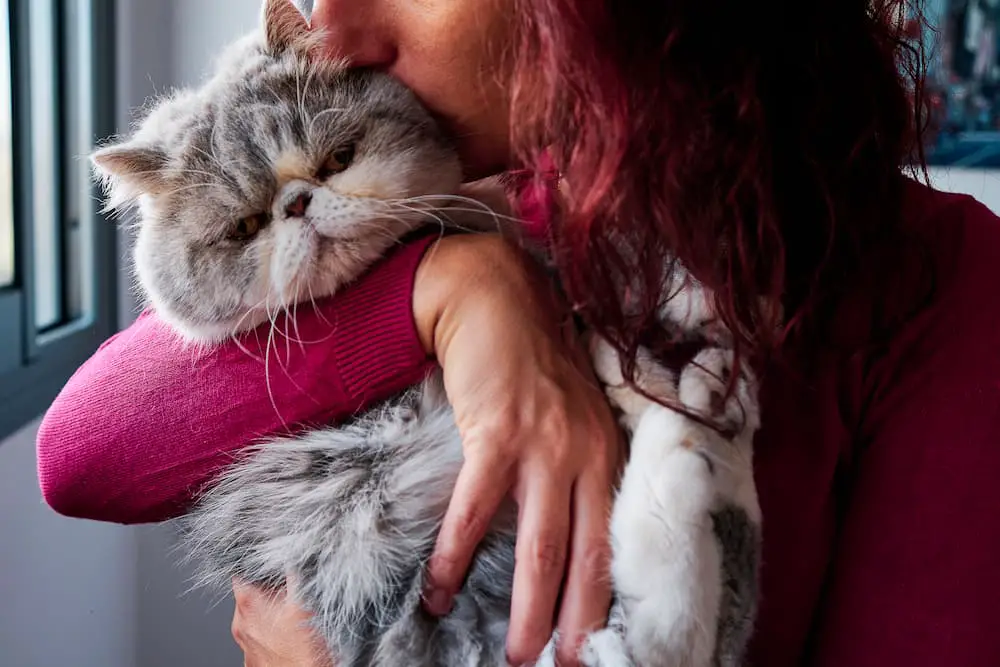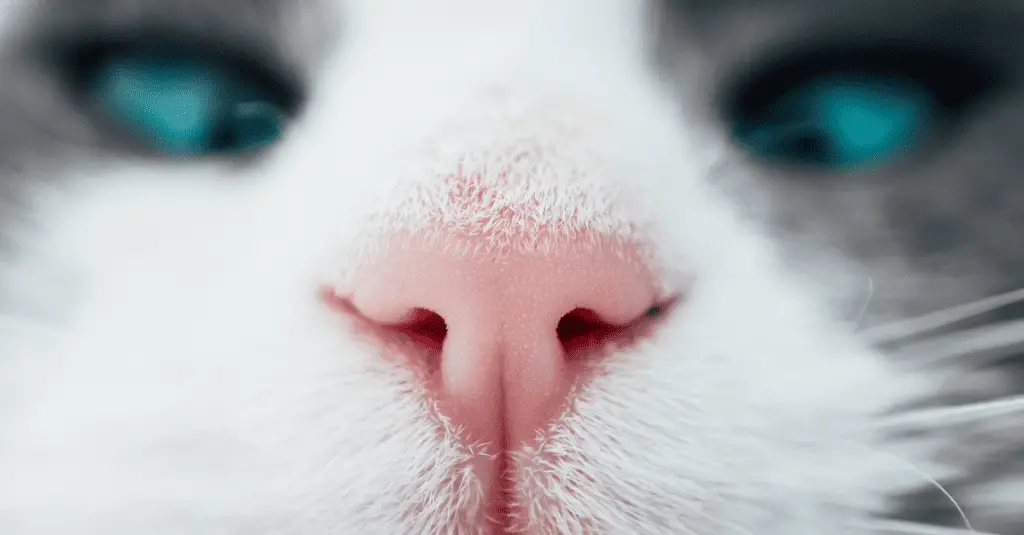
We all know there are things we can do in our everyday lives to stay healthier… exercise, eat well, brush our teeth, wash our hands… So it should come as no surprise that there are some basic things we can do for our cats to keep them healthier, too! We’ve compiled a list of ten things you can do to help keep your cat healthy, happy and safe.
1. Get Regular Exams by a Veterinarian

Cats can develop health problems, arthritis, allergies, even toothaches. The absolute best way to stay on top of their health is to have them regularly examined by a veterinarian every year. Your vet will offer advice on nutrition, let you know if your cat is in good physical shape or has packed on too many pounds, recommend necessary vaccinations and help with parasite control. As your kitty ages, he should perform routine bloodwork to catch any problems as early as possible.
2. Prevent Parasites
Fleas can cause uncomfortable itching for your cat and you, but can also lead to hair loss, hot spots and infection if left untreated. They’re the most common external parasite plaguing our cats, and just one ingested flea can infect your feline friend with tapeworms. Fortunately, they’re easy to prevent with some of the many options available today. You can choose between topical once-a-month applications like Advantage and Frontline or medicated collars like Seresto. Be careful, though, some over-the-counter flea medications can be fatal to cats. So, talk to your veterinarian about the best option for your kitty.
3. Maintain a Healthy Weight

According to the Association for Pet Obesity Prevention, an estimated 54% of cats are now considered to be overweight or obese and the number continues to grow. Obesity in cats can lead to diabetes, arthritis, heart disease and shortened life. Ask your veterinarian if your cat is a healthy weight and, if he’s a little on the chubby side, formulate a healthy weight loss plan.
4. Spay and Neuter your Cats
Eight to ten million pets end up in shelters every year. Only a small number of them ever leave. You can avoid adding to that number by spaying and neutering your cats. The procedure is relatively simple, inexpensive, and can be done when your cat is as young as 8-12 weeks in some cases. Not only are you helping with the pet overpopulation problem when you spay or neuter your cat, you also eliminate the risk of certain cancers, eliminate many behavioral problems (like spraying!), and reduce your cat’s desire to leave the home and roam.
5. Get Vaccinations
Cats should (and in some cases are required by law to) get vaccinated against certain diseases. Rabies, feline distemper, rhinotracheitis and calicivirus can be prevented later in life by vaccination when the cat is young. Talk to your veterinarian about what vaccines make sense for your cat based on her age, lifestyle and risks.
6. Provide an Enriched Environment

Let’s face it, cats need mental stimulation. They may sleep most of the day away but when they’re awake, they need toys, scratchers, multiple levels to climb on, perhaps a window perch to watch the birds outside. An enriched environment also includes playtime with their human to strengthen their bond with you.
7. Microchip your Cat
A microchip is about the size of a grain of rice. It’s inserted under the skin between your cats shoulder blades and contains your name and contact information. Should your cat get lost or run off, any veterinarian, animal control facility or shelter that finds him can scan him and contact you to let you know they have your cat.
8. Your Cat Needs Regular Dental Care

Just like you, your cat can get toothaches, gum disease, plaque and tartar. Also just like you, your cat will benefit from regular cleaning and dental care! An estimated 70% of cats show signs of dental disease by the age of 3. Poor dental health can lead to long term issues including kidney, heart and metabolic diseases. Talk to your veterinarian about the many options for daily dental care and also about having a routine dental cleaning.
9. Don’t Give Your Cat Human Medications
Simply put, medicines that are safe for you can very possibly kill your cat. Ibuprofen and naproxen, for example, are highly toxic to cats. Acetaminophen (Tylenol), aspirin, decongestants and muscle relaxers can all be dangerous, causing kidney damage, heart failure, and even death. Never give your cat any medication without your veterinarian’s instructions.
10. Restrain your Cat when Riding in a Car

Buckle up for safety, right? That includes your cat! Unrestrained cats in the car are a distraction for you – and can become a serious hazard should you be involved in an accident, causing severe injury to you and, even worse, to your cat. Cats should always be in carriers, secured with a safety belt in the backseat of the car – away from the airbag should it deploy.
Follow these ten tips to keep your cat healthy, happy and safe! What other ways do you ensure the long life of your beloved kitty? Tell us!
And, if you found this article helpful, help us by pinning it!









